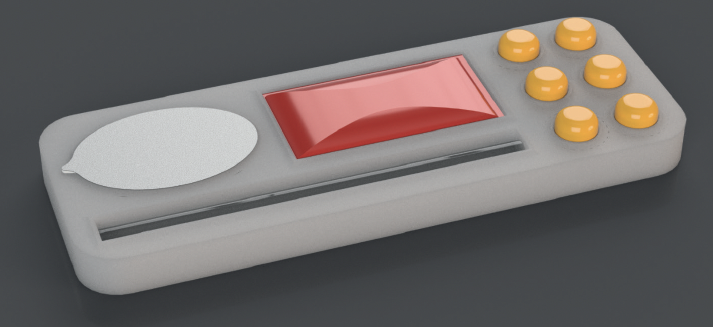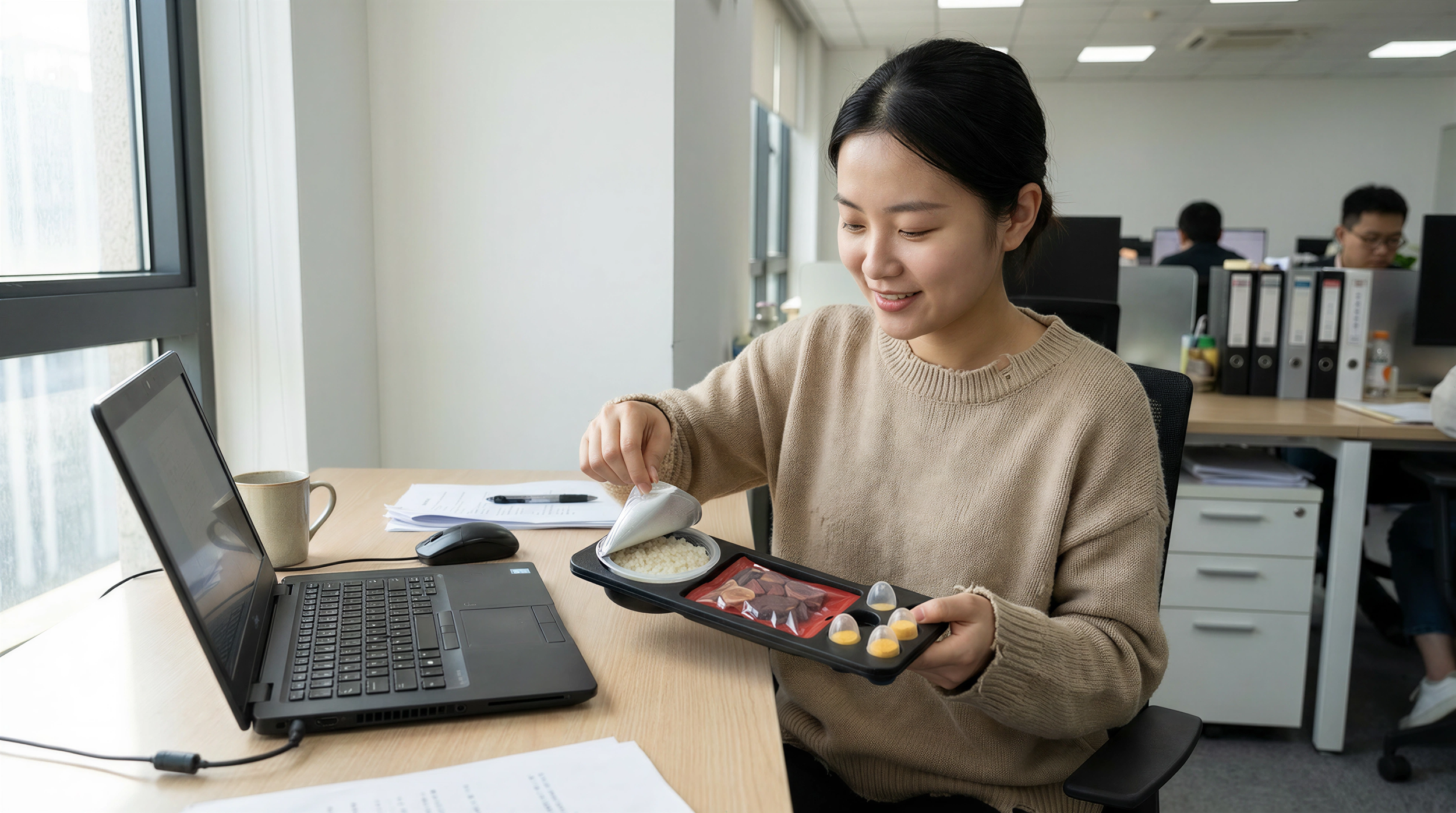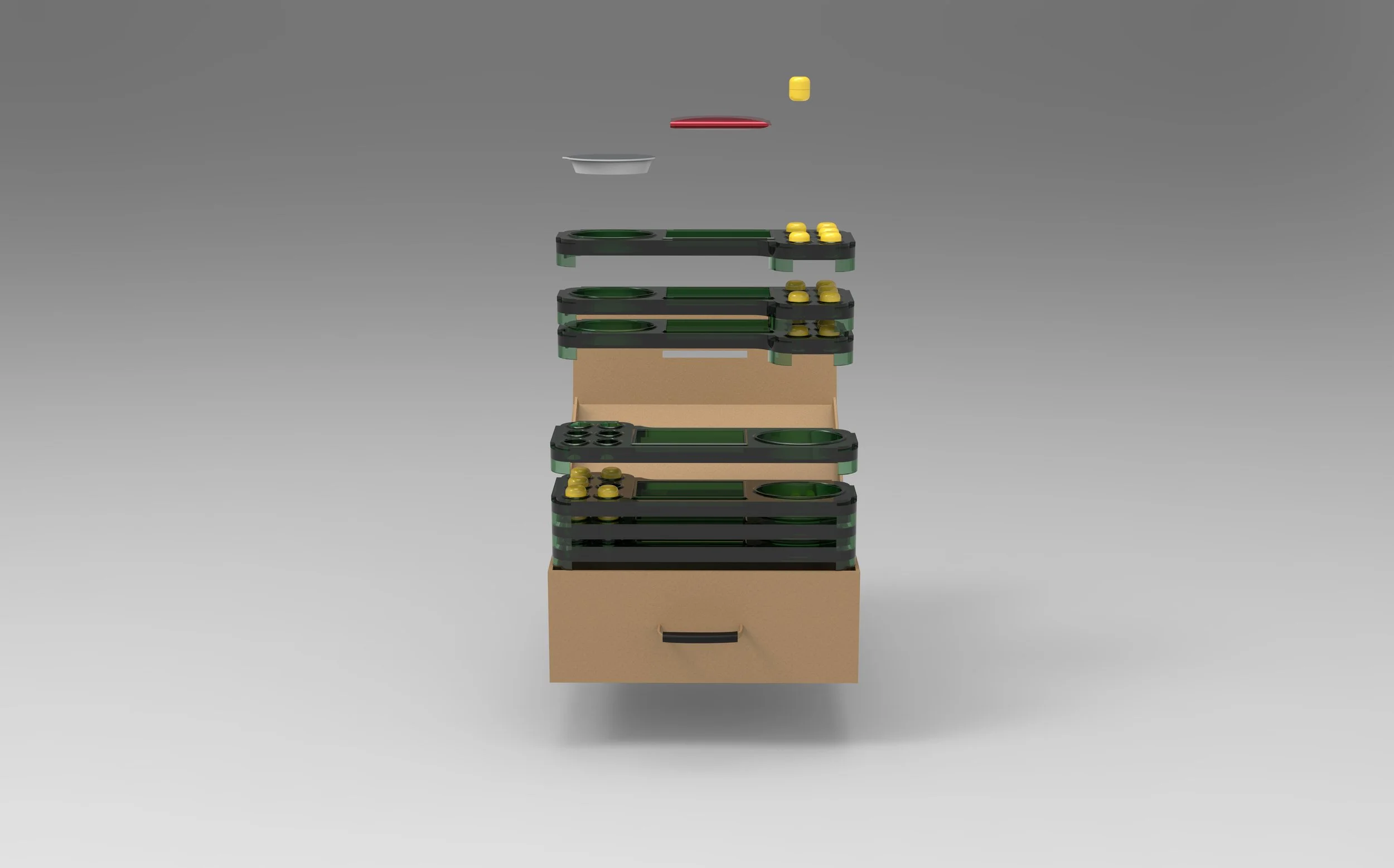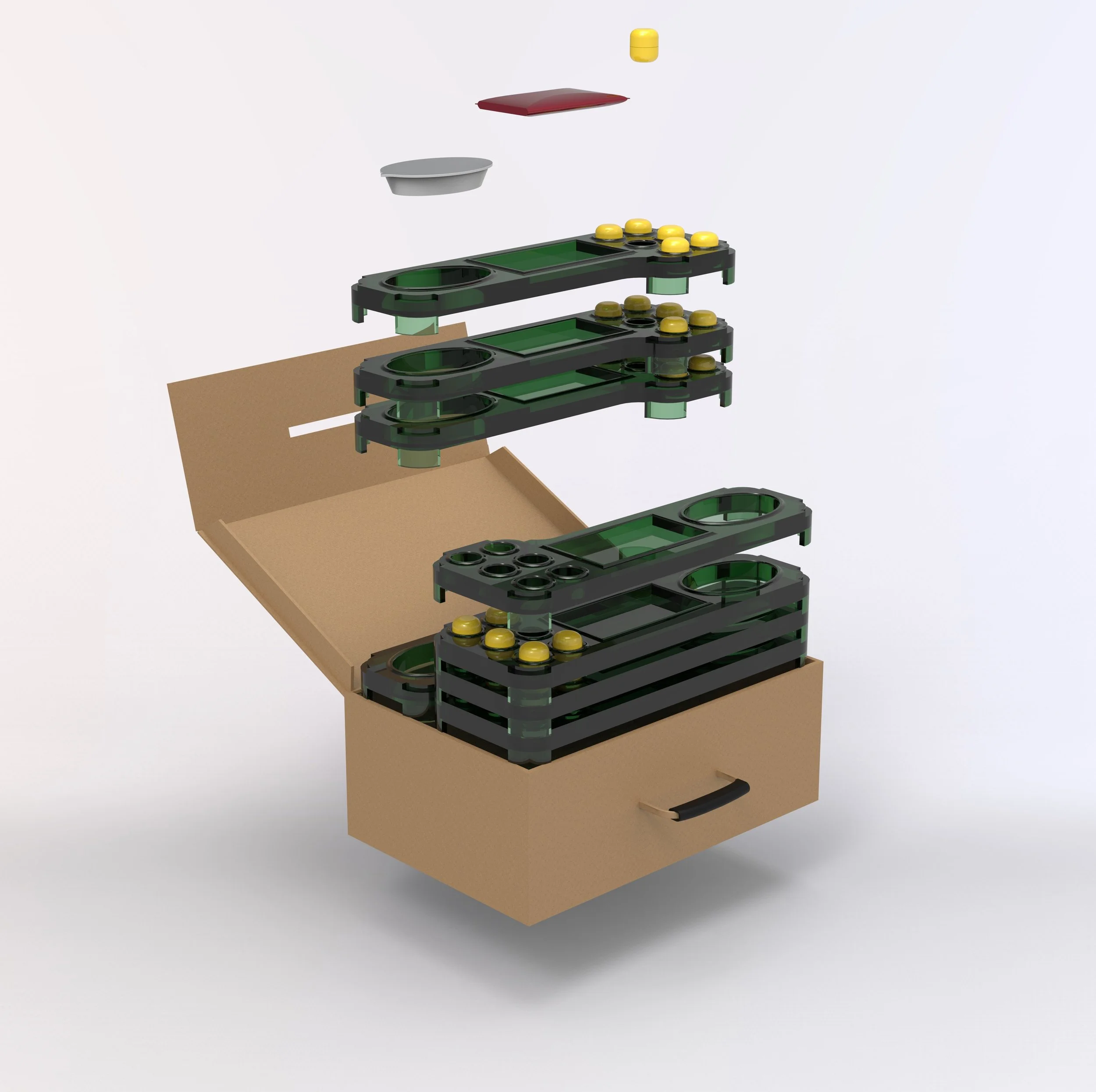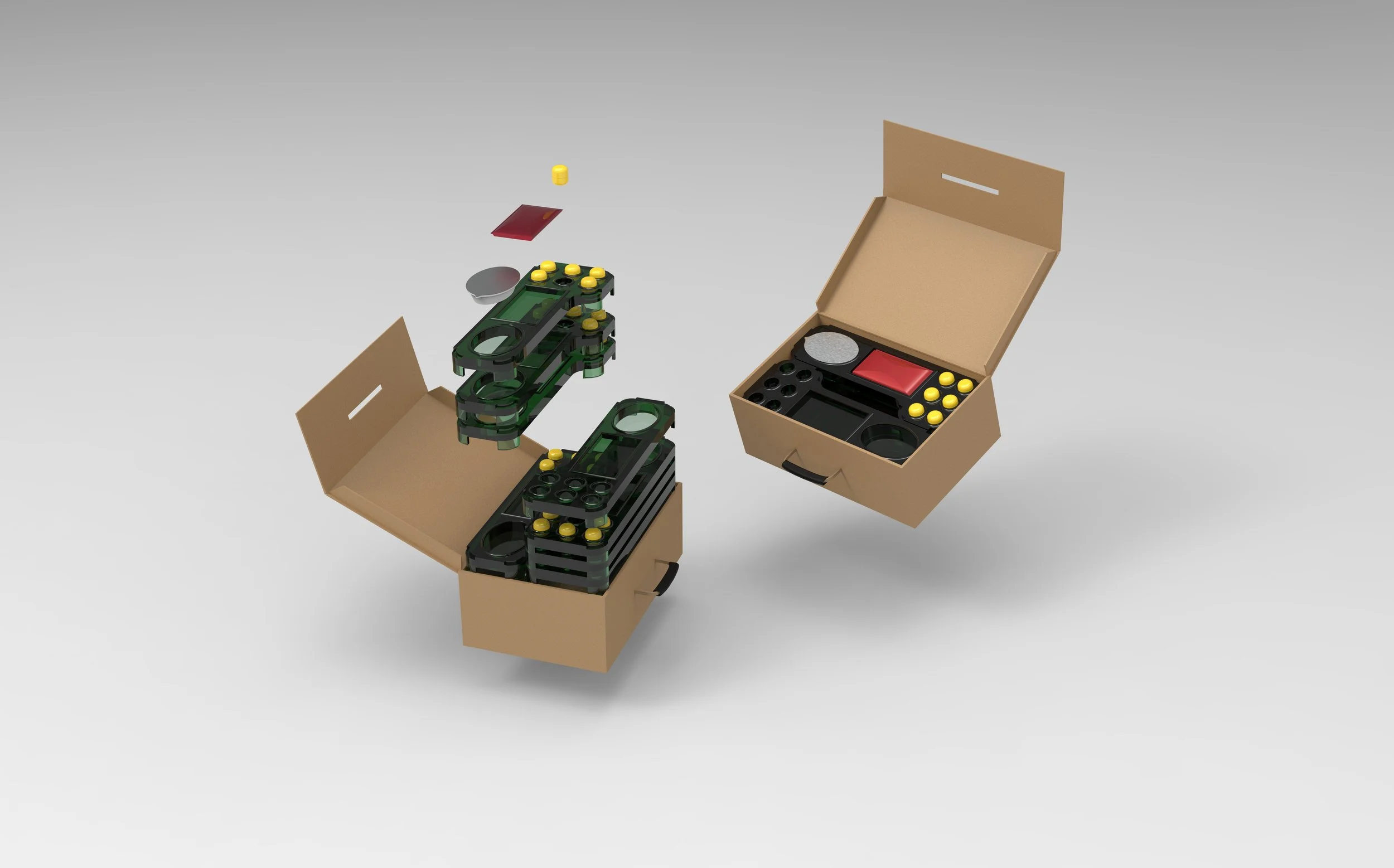Food Tray – A low cost solution for mass catering
ROLE
Individual project
Graduation project @ Central Saint Martins
DURATION
2 months (8 weeks)
TOOLS
Fusion 360 l KeyShot l Photoshop l Illustrator
OVERVIEW
This project explored how lower-income families might access affordable food in the speculative future of a 15-minute city. With housing costs outpacing wages and social segregation deepening, I proposed a powdered food cooking tray a low-cost, stackable system that delivers quick, nutritious meals for around £0.25. Designed from empathy for single parents and struggling households, the concept balances speculative food futures with practicality, reframing nutrition as an accessible, dignified daily experience.
01 INTRO
The 15-Minute City is often celebrated as a sustainable urban model, but my project looked at the inequalities it could deepen by 2038. With food costs rising faster than wages and social segregation on the increase, I wanted to explore what survival might look like for families on the lowest incomes. This project wasn’t about luxury or convenience—it was about empathy. By focusing on food insecurity, I set out to design a speculative but practical solution for parents forced to skip meals to keep their children fed and their homes heated.
I began by examining the wider global food crisis: rising populations, degraded soils, water shortages, climate change, and geopolitical shocks such as the Ukraine war, which disrupted global wheat supplies. These pressures highlighted how fragile our food systems are and how vulnerable lower-income families would be in a 15-minute city.
Closer to home, I looked at the London cost-of-living crisis housing prices rising faster than wages, single parents spending up to 50% of income on childcare, and families forced to choose between heating and food. In Golborne, London’s poorest ward, I carried out primary research, noting the lack of bike lanes, compact living conditions, and restaurant meals costing upwards of £16 despite local poverty. This confirmed the reality of inequality and food insecurity in urban areas.
02 RESEARCH
From these insights, I identified three key issues:
Rising housing costs leaving little for food.
Parents skipping meals to cover bills.
Segregation and isolation, which limit access to community support.
This research built the foundation for a speculative but grounded design approach to food in 2038.
I decided to focus on one key issue; that parents are skipping meals.
03 IDEATION
I explored speculative futures for food in 2038—QR codes for free meals, self-farming kits, and community donation boxes. Each fell short due to privacy, upkeep, or reliance on others. From a wider look at insect protein, pill foods, lab-grown meat, and powders, powdered food emerged as the most viable: cheap, long-lasting, and easy to cook into simple, familiar meals while retaining dignity.
04 SKETCH MODELS
Early prototypes tested different formats, from bottles to trays. I chose the tray system for its link to everyday cooking, stackability, and clear layout. Quick mock-ups helped refine handling, portion sizes, and packaging, making the concept intuitive while keeping costs low.
04 DEVELOPMENT
Development focused on refining the tray into a practical, low-cost system. I tested stackability, portioning, and ease of use, ensuring the product felt familiar while remaining efficient. Material research led to PP, PE, PET, cardboard, aluminium, and silicone, chosen for food safety, low price, and automated mass production. Handles and packaging were refined through testing for comfort and storage, aiming for a balance between affordability and dignity in use.
04 FINALISATION
The outcome was a stackable powdered food tray providing a full meal for around £0.25. By adding water and heat, powders like egg or rice became simple, nutritious dishes. The design targeted low-income families, especially parents skipping meals, and aimed to reduce financial stress while keeping a sense of cooking ritual. Though not perfect in sustainability, the tray offers a speculative, empathetic response to food insecurity in future 15-minute cities.













